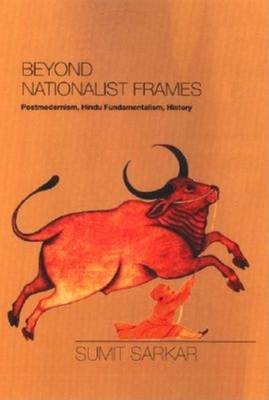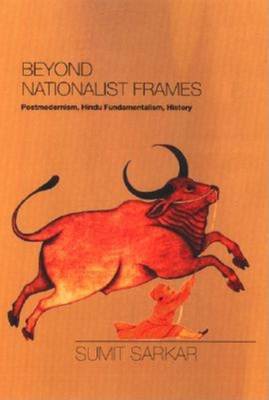
- Retrait gratuit dans votre magasin Club
- 7.000.000 titres dans notre catalogue
- Payer en toute sécurité
- Toujours un magasin près de chez vous
- Retrait gratuit dans votre magasin Club
- 7.000.000 titres dans notre catalogue
- Payer en toute sécurité
- Toujours un magasin près de chez vous
Beyond Nationalist Frames
Postmodernism, Hindu Fundamentalism, History
Sumit SarkarDescription
The political context in which historians of India find themselves today, says Sumit Sarkar, is dominated by the advance of the Hindu Right and globalized forms of capitalism, while the historian's intellectual context is dominated by the marginalization of all varieties of Marxism and an academic shift to cultural studies and postmodern critique. In Beyond Nationalist Frames, one of India's foremost contemporary historians offers his view of how the craft of history should be practiced in this complex conjuncture. In studies of colonial time-keeping, Rabindranath Tagore's fiction, and pre-Independence Bengal, Sarkar explores new approaches to the writing of history. Essays on contemporary politics consider the implications of the "Hindu Bomb," the rewriting of national history textbooks by Hindu fundamentalists, and the issue of conversion to Christianity. Scholars in all the fields touched by recent developments in South Asian historiography--anthropology, feminist theory, comparative literature, cultural studies--will find this a stimulating and provocative collection of essays, as will anyone interested in Indian politics.
Spécifications
Parties prenantes
- Auteur(s) :
- Editeur:
Contenu
- Nombre de pages :
- 280
- Langue:
- Anglais
Caractéristiques
- EAN:
- 9780253342034
- Date de parution :
- 20-09-02
- Format:
- Livre relié
- Format numérique:
- Genaaid
- Dimensions :
- 153 mm x 219 mm
- Poids :
- 480 g







